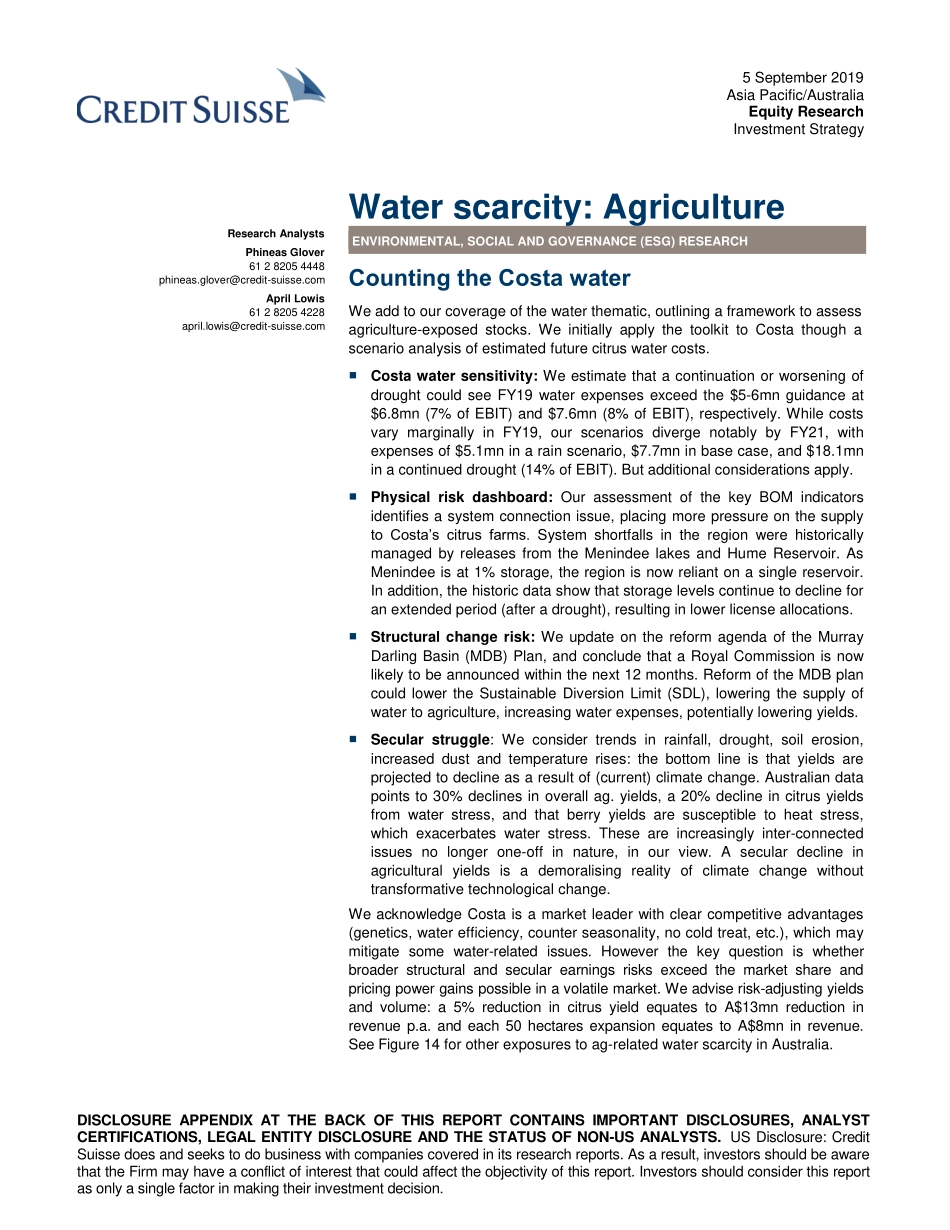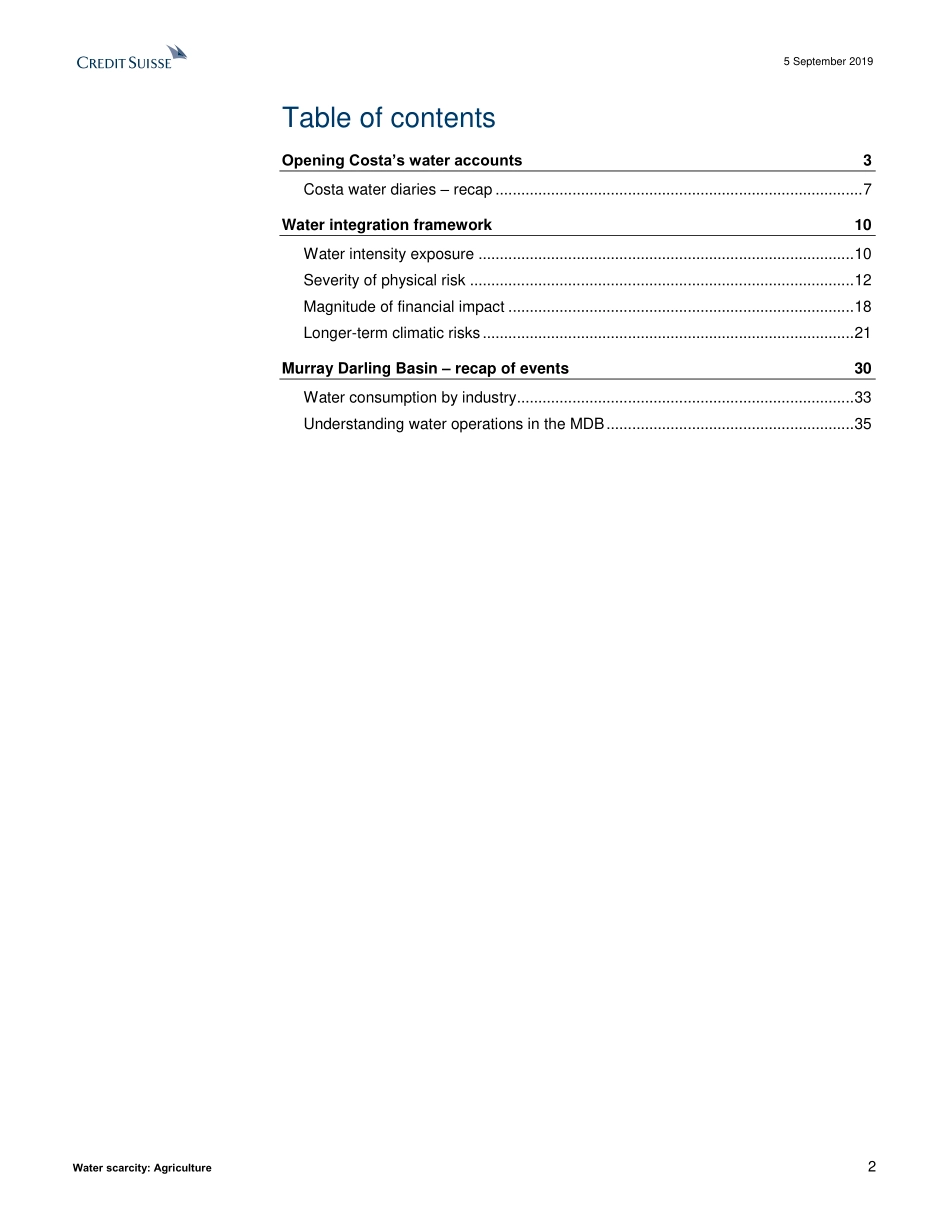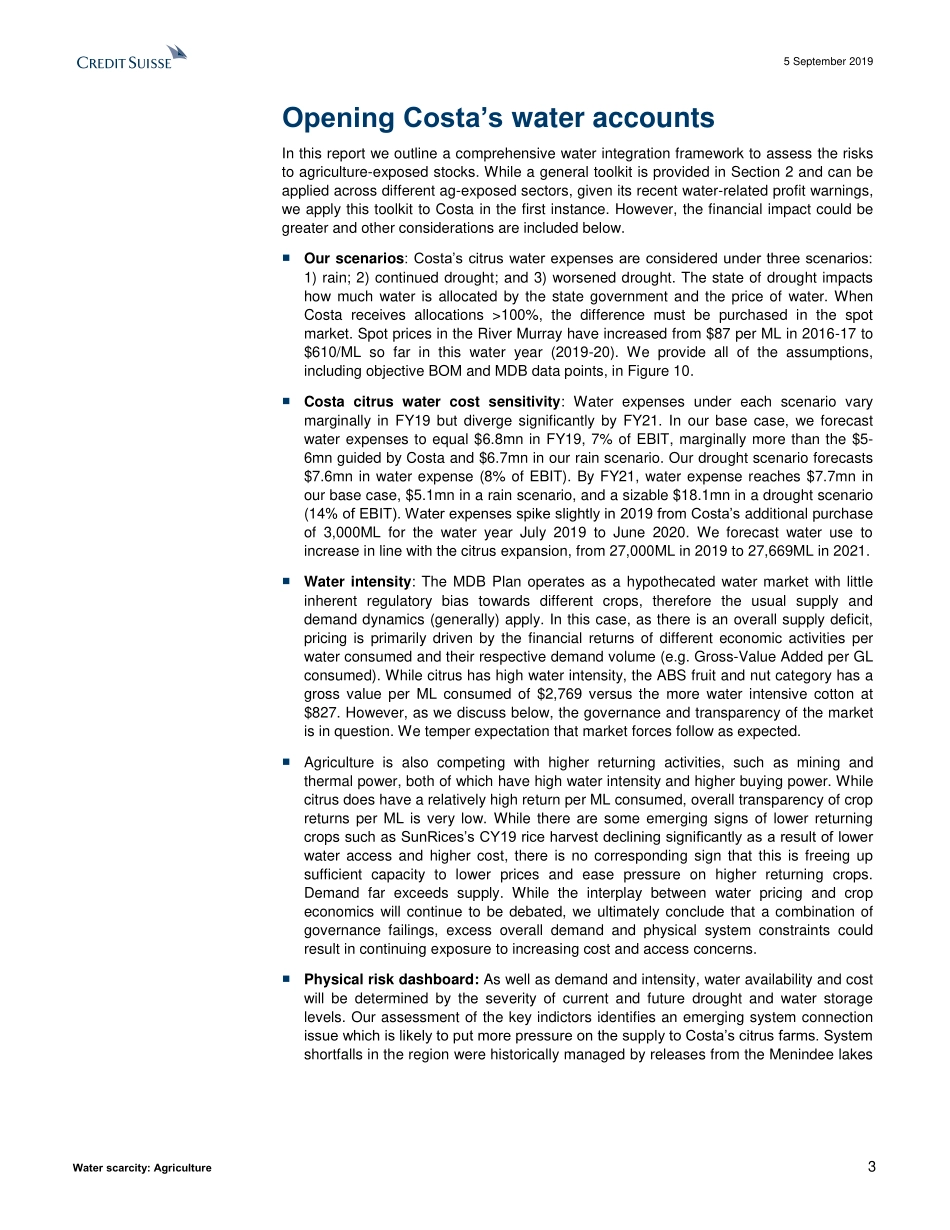DISCLOSURE APPENDIX AT THE BACK OF THIS REPORT CONTAINS IMPORTANT DISCLOSURES, ANALYST CERTIFICATIONS, LEGAL ENTITY DISCLOSURE AND THE STATUS OF NON-US ANALYSTS. US Disclosure: Credit Suisse does and seeks to do business with companies covered in its research reports. As a result, investors should be aware that the Firm may have a conflict of interest that could affect the objectivity of this report. Investors should consider this report as only a single factor in making their investment decision. 5 September 2019 Asia Pacific/Australia Equity Research Investment Strategy Water scarcity: Agriculture Research Analysts Phineas Glover 61 2 8205 4448 phineas.glover@credit-suisse.com April Lowis 61 2 8205 4228 april.lowis@credit-suisse.com ENVIRONMENTAL, SOCIAL AND GOVERNANCE (ESG) RESEARCH Counting the Costa water We add to our coverage of the water thematic, outlining a framework to assess agriculture-exposed stocks. We initially apply the toolkit to Costa though a scenario analysis of estimated future citrus water costs. ■ Costa water sensitivity: We estimate that a continuation or worsening of drought could see FY19 water expenses exceed the $5-6mn guidance at $6.8mn (7% of EBIT) and $7.6mn (8% of EBIT), respectively. While costs vary marginally in FY19, our scenarios diverge notably by FY21, with expenses of $5.1mn in a rain scenario, $7.7mn in base case, and $18.1mn in a continued drought (14% of EBIT). But additional considerations apply. ■ Physical risk dashboard: Our assessment of the key BOM indicators identifies a system connection issue, placing more pressure on the supply to Costa’s citrus farms. System shortfalls in the region were historically managed by releases from the Menindee lakes and Hume Reservoir. As Menindee is at 1% storage, the region is now reliant on a single reservoir. In addition, the historic data show that storage levels continue to decline for an extended period (after a drought), resulting in lower license allocations. ■ Structural change risk: We update on the reform agenda of the Murray Darling Basin (MDB) Plan, and conclude that a Royal Commission is now likely to be announced within the next 12 months. Reform of the MDB plan could lower the Sustainable Diversion Limit (SDL), lowering the supply of water to agriculture, increasing water expenses, potentially lowering yields. ■ Secular struggle: We consider trends in rainfall, drought, soil erosion, increased dust and temperature rises: the bottom line is that yields are projected to decline as a result of (current) climate change. Australian data points to 30% declines in overall ag. yields, a 20% decline in citrus yields from water stress, and that berry yields are susceptible to heat stress, which exacerbates water stress. These are increasingly inter-connected issues no longer one-off in nature, in our view. A secular decline in agricultural yie...


